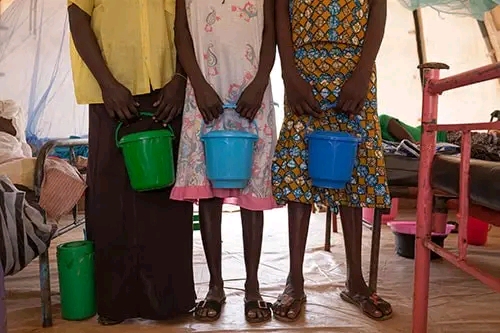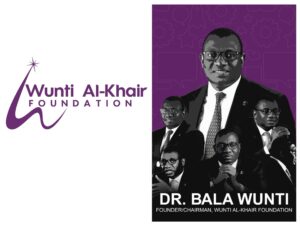
By Hauwa Mohammed Aminu
I am 30 years old, Hauwa Muhammad Aminu, a Bauchi based. I’m a survivor of Vesico Vaginal Fistula for 4 years.
It happened when I was involved in an accident 26 years ago, which led to an injury in my bladder, though it was repaired at that time.
Fast forward to 2019, when I gave birth to my second child, I started experiencing severe pain in my stomach, difficulty sleeping and breathing properly.
Several investigations were conducted, which showed bladder diverticulum, mild right side obstructive uropathy, stenosis, and many more .
I underwent a successful surgery, and 2 days post operative while I was eating, I felt a sudden pain in the abdomen, which before the end of the day, I started leaking urine pericatheter. I was taken back to the operating room for urethrocystoscopy, which stenosis was noted and re-explode, and so many more.
12 days post-operative, I started leaking urine again. Thereafter, an assessment of Vesico Vaginal Fistula was made, and I was placed for conservatives of 6 weeks. To tell you the level of devastation I went through, hoping it gets healed or a miracle to happen is an understatement.
I was later referred to National Obstetric Fistula Center (NOFIC) Ningi, Bauchi state, where I met other women with similar cases.
Being diagnosed with fistula is quite scary and depressing at the beginning, because I had to take pills to be able to sleep, despite all the support from my family, especially my husband who has been very supportive and tolerable, as I have never for once, experienced any form of insecurities.
Even though, it has affected my social relationship in terms of visitations or social gatherings, where I started thinking of how to survive and socialize just like everyone else, especially in providing myself diapers, perfumes, clothing and detergents that will take away the foul smell, a development that got me thinking about all the other women that are shunned or divorced by their husbands or community on how do they survive mentally, emotionally and financially as one may undergo multiple surgeries and still come out unsuccessful.
How do they cope and who do they go for help as 80% of them are divorced? All we want is to feel among and be treated with kindness.
According to the World Health Organization (WHO), over 2 million women worldwide live with obstetric fistula, with the majority of such cases occurring in resource-poor countries like Nigeria. Afflicted tend to be both old and young primiparous mothers, impoverished to interact with society as a result of our foul smell and inability to bear more children.
This results in us being ostracized and shunned by our community.
Most Obstetric fistulas are surgically correctible, although surgical outcomes have been poorly studied as a patient may undergo so many surgeries and still be unsuccessful.
As we mark this year’s International Day To End Obstetric Fistula, it is worth noting that treatment is now free in Nigerian Fistula Centres. It is a huge relief, which people find much easier and less stressful mentally and financially.
Though the free treatment brings relief to the VVF patients, it is sad that a woman with a fistula who is perpetually leaking urine and sometimes feces is often rejected by her husband, divorced or shunned, and discriminated by the people around her. This result in so much shame, worries, fear, and depression but due to frequent visits to the hospital and interaction with other victim, they are relieved of such predicaments.
The government of Nigeria and other international bodies have made the surgery-free and sometimes distribute machines to those whose surgeries are successful to start afresh but what happens to us that are still struggling with the injury for decades or a few years?
There’s a need for more intervention in so many ways, especially on how we should keep personal hygiene by providing us with perfumes, washing detergent, and pampers so as to move freely, as only 4% of the population can afford.
I urge the government, NGOs, and wealthy individuals to assist by enrolling us in schools and providing us with jobs or capital to start businesses; this will enable us to cater for our daily needs in this high cost of upkeep and God will undoubtedly reward all that help.
Apart from the financial impact, such a gesture will also keep us engaged, thereby making us feel relevant in the society.
I celebrate all fistula mothers in Nigeria and all over the world. Happy International Day To End Obstetric Fistula.
Hauwa Muhammad Aminu writes from Bauchi, can be reached on email: savewomenwithfistula@gmail.com
Instagram:savewomen_with_fistula or 08033661611


